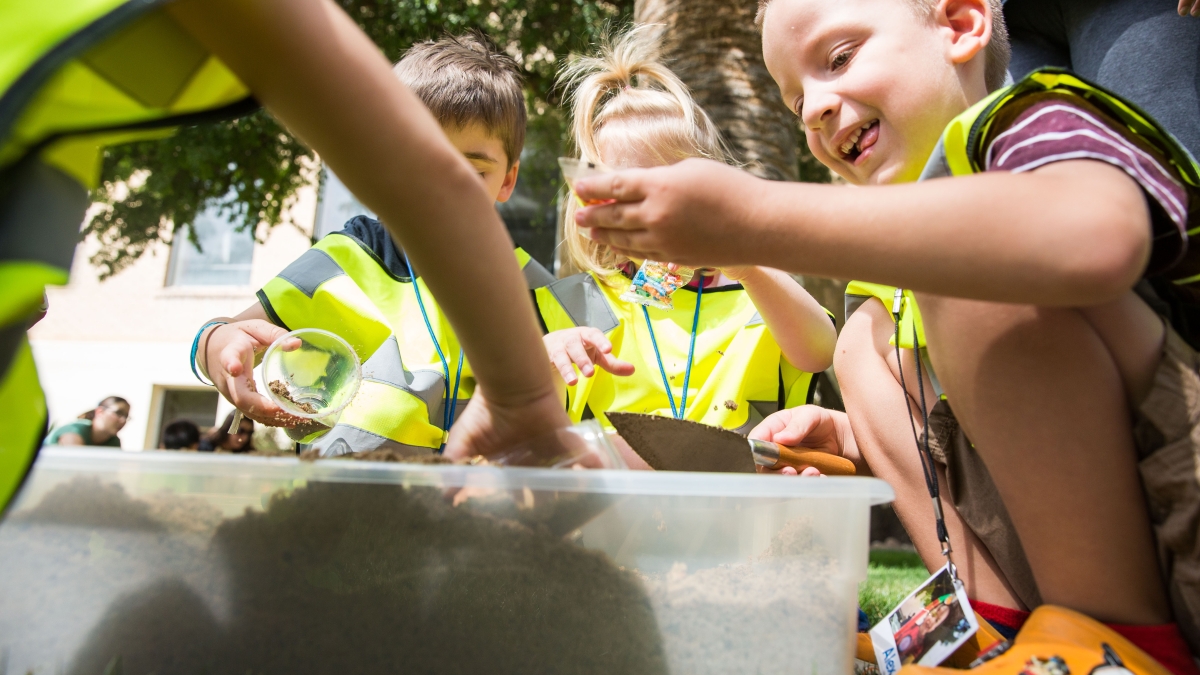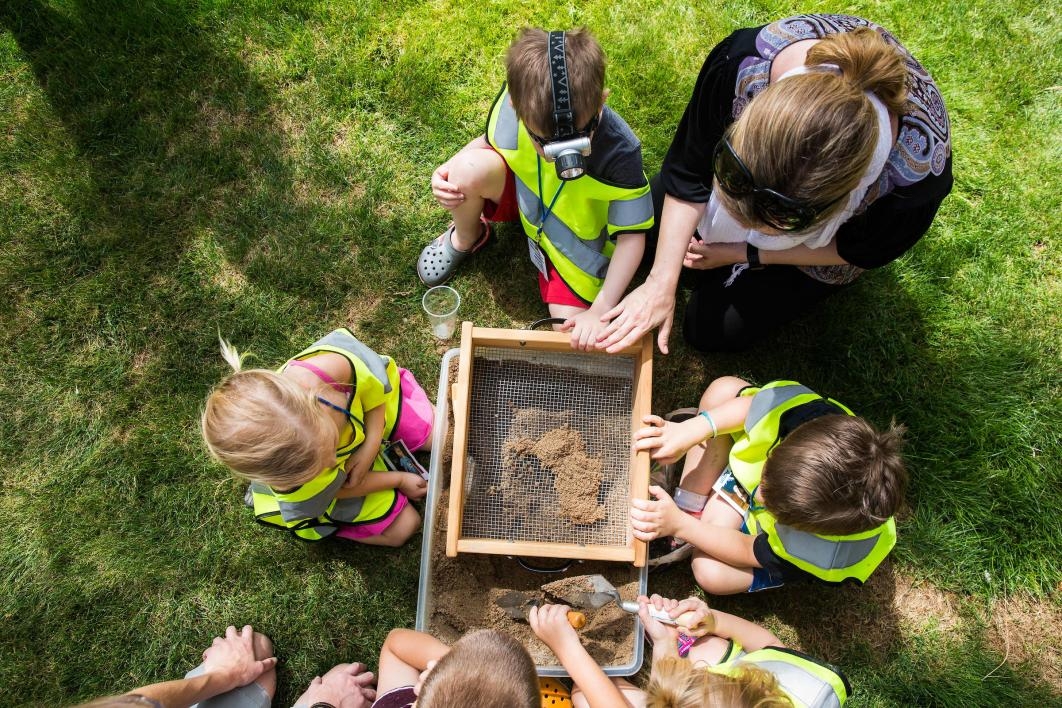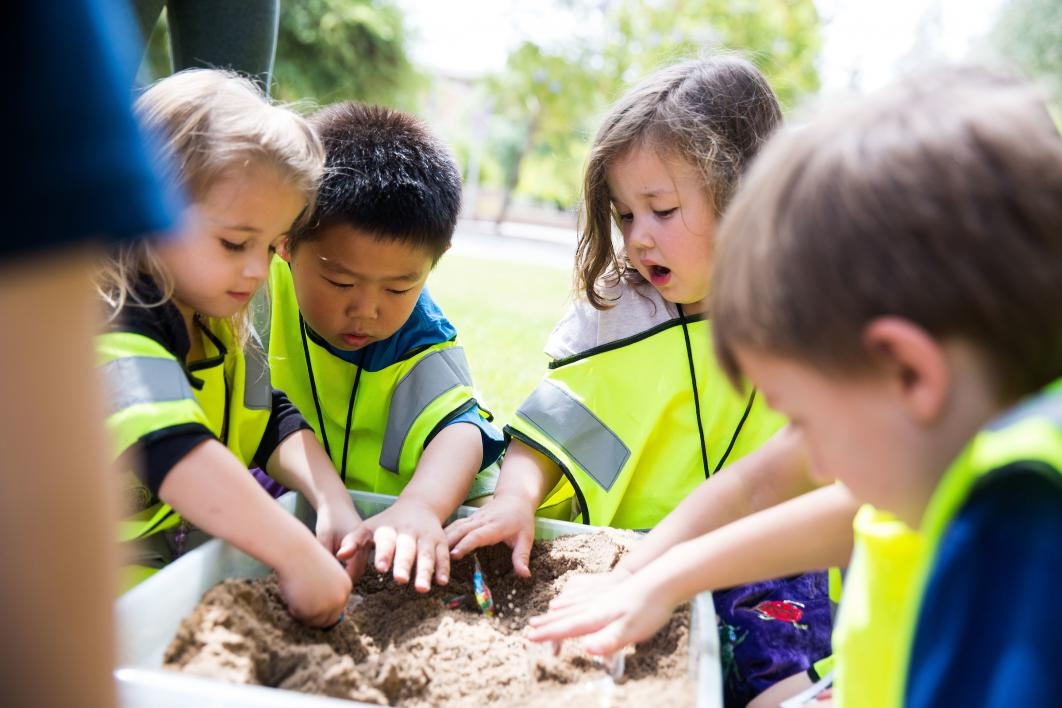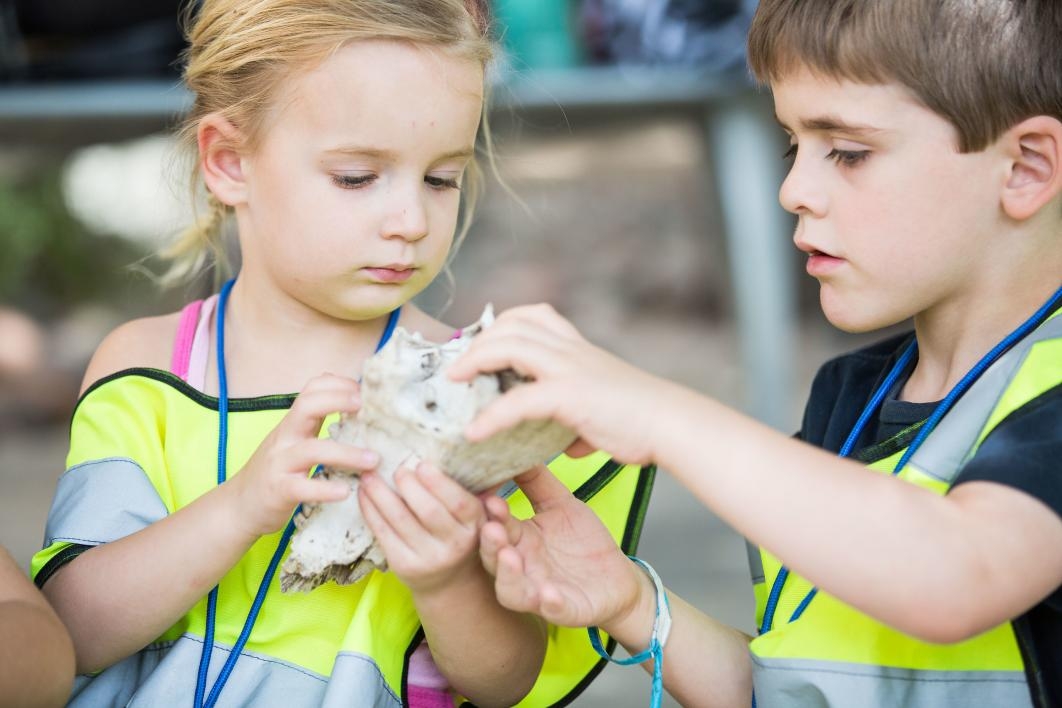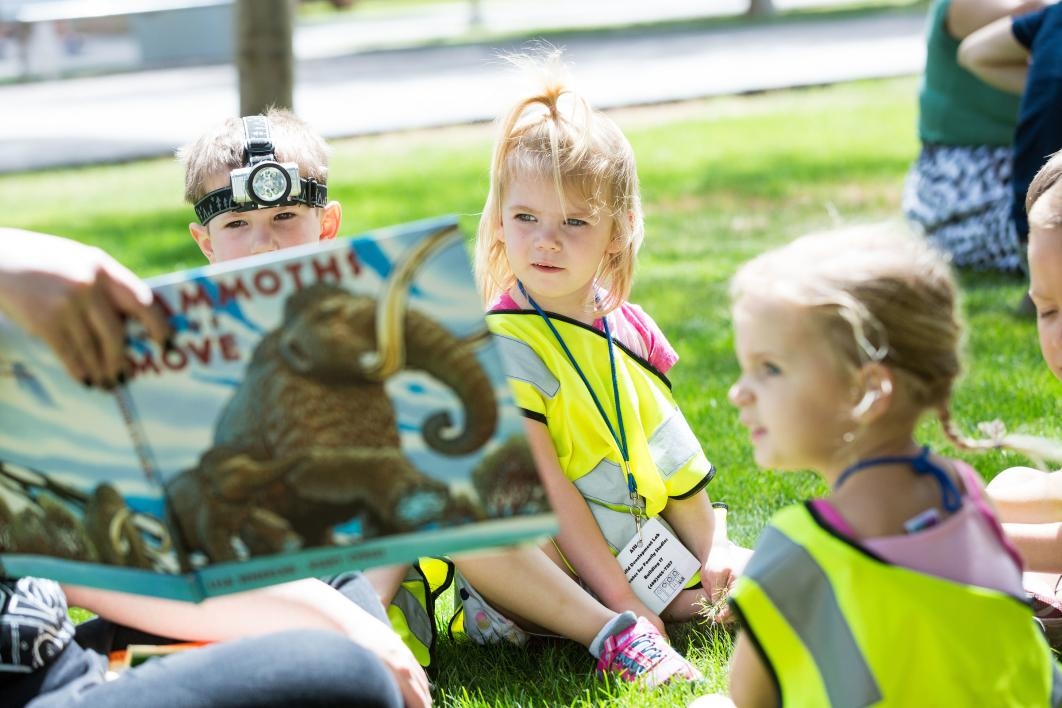In an effort to get young kids excited about the field of archaeology, Arizona State University held its first-ever mock excavation exercise Monday on the front lawn of the School of Human Evolution and Social Change building on the Tempe campus.
Preschoolers from ASU’s Child Development Laboratory had the chance to feel different types of animal bones and listen to a book about woolly mammoths, in addition to everyone's favorite activity — digging through sand to search for bags of bone-shaped candy.
"I think the kids loved digging and exploring," said Kelly KnudsonKnudson is also an associate professor in the School of Human Evolution and Social Change., director of the ASU Center for Bioarchaeological Research. "At this age, they don't already know if they like science or not. Getting them to understand at such an early age what science is will help create more leaders in the science community and teach them that science can be fun."
A handful of student volunteers were also on hand to assist in everything from shuttling kids to the site of the dig to explaining what bones belong to which kind of animals.
"I think getting to do hands-on things with kids like this is exciting," said bioarchaeology graduate student Sofia Pacheco-Fores. "A lot of the time we'll take them on lab tours to show them what we're doing, but that's kind of abstract. Doing a fake dig or mock excavation is more real to them."
The excitement was visible all morning. Smiles crossed the preschoolers faces as they dug with both hands and trowels in search of a tasty treat, and the sound of laughter filled the air as they learned about prehistoric beasts.
For preschooler Mathias Knudson-Krantz, the opportunity to take home a bag of sugar made the day memorable.
"I love excavating for candy," he said through a wide grin.
More Science and technology

Stuck at the airport and we love it #not
Airports don’t bring out the best in people.Ten years ago, Ashwin Rajadesingan was traveling and had that thought. Today, he is an assistant professor at the University of Texas at Austin, but back…

ASU in position to accelerate collaboration between space, semiconductor industries
More than 200 academic, business and government leaders in the space industry converged in Tempe March 19–20 for the third annual Arizona Space Summit, a statewide effort designed to elevate…

A spectacular celestial event: Nova explosion in Northern Crown constellation expected within 18 months
Within the next year to 18 months, stargazers around the world will witness a dazzling celestial event as a “new” star appears in the constellation Corona Borealis, also known as the Northern Crown.…


